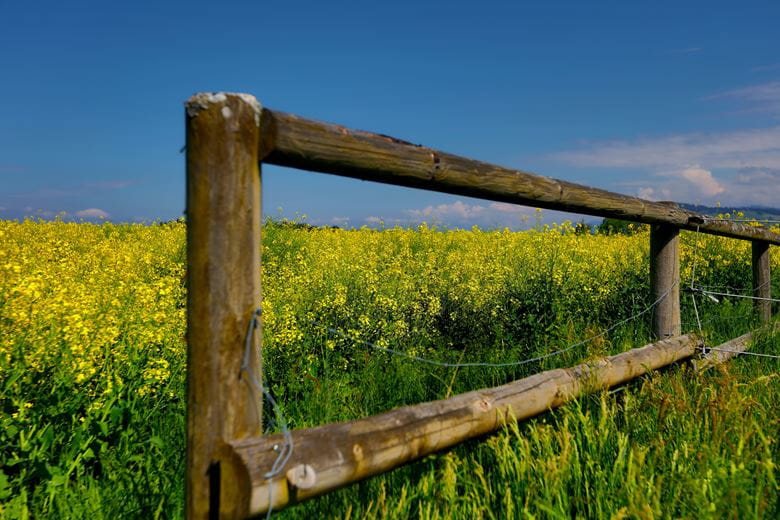The Sustainable Farming Incentive (SFI) is the flag ship scheme under the Environmental Land Management Scheme (ELMS) which aims to encourage farmers to employ techniques through the scheme that enhance the environment.
Updated 19.07.2024
SFI continues to develop with DEFRA introducing a range of new actions and operation. These options will be grouped into simple packages, with multiple options within each overriding action. This structure is intended to avoid penalising those farmers that have already implemented environmentally conscious practices.
SFI 2024 see’s the introduction of over 79 options into the scheme, the majority of these options will be brought across from the current Mid-Tier options in a new approach which will see a combined offer between SFI and Countryside Stewardship Mid-Tier allowing a closer collaboration between schemes to not disadvantaging anyone. There will be the option of 3 year and 5-year options which will sit under one agreement. All the options from the 2023 version of the scheme will remain with a few taking different codes but are the same otherwise.
An additional management payment of £40 per hectare is available per agreement, up to a maximum of 50 hectares (£2,000). This will be reduced to £20 per ha in years 2 and 3 (£1,000). The overarching action titles are as follows:
- Actions for Soil Health
- Actions for Agroforestry
- Actions for Boundary Features
- Actions for Buffer Strips
- Actions for Waterbodies
- Actions for Organic Farming
- Actions for Farmland Wildlife on Arable and Horticultural Land
- Actions for Moorland
- Actions for Precision Farming
- Actions for Farmland Wildlife and Habitats on Grassland
- Actions for Heritage
- Actions for Species Recovery and Management
- Actions for Integrated Pest Management
- Actions for Nutrient Management
- CSAM1 Assess soil, produce a soil management plan and test soil Organic matter (£6 per ha and £97 per Agreement)
- CHRW1 Asses and Record Hedgerow Condition (£5 per 100m (per side))
- CIPM1 Assess Integrated Pest Management and Produce a Plan (£1,129 per agreement per year)
- CNUM1 Assess Nutrient Management and Produce a Review Report (£659 per agreement per year)
- CNUM3 Legume Fallow (£593 per ha)
- CAHL2 Winter Bird Food on Arable and Horticultural Land (£853 per ha)
- SOH1 No till Farming (£73 per ha)
- AGF1 Maintain very low density in-field agroforestry on less sensitive land (£248 per ha)
- PRF1 Variable Rate Nutrient Application (£27 per ha)
- PRF2 Camera or Remote Sensor Guided Herbicide Spraying (£43 per ha)
- BND1 Maintain Dry Stone Walls (£27 per 100m (both side))
- WBD1 Manage Ditches (£4 per 100m (both sides))
25% Cap
The 25% cap introduced by Defra early this year to reduce the amount of land being put into options which take land out of production remains in the 2024 version of the scheme with some of the new options being put under this cap. This now includes Bumblebird Mix (AHW1), Unharvested Cereal Headland (AHW9), Cultivated Areas for Arable Plants (AHW11) and In Field Grass Strips (WBD3).About the SFI actions:
- An option of three-year or five-year agreement depending on choice of option.
- Flexible to add new land into the agreement every 12 months at the annual declaration, mainly to increase the area of land or improve the standard complied with
- There will be a rolling application window
- Payments are made quarterly, in arrears
- Soil management plans will need to be reviewed annually with testing renewed on a 5-yearly basis.
- Double funding is not permitted, but land subject to BPS claim may also be used for SFI Actions.
- RPA is allowing SFI & CS combined applications as of 2024 (SFI 2024).
- Non-BPS claimants can now apply.
What we know about the future SFI actions:
Looking ahead we expect to see more options implemented into the schemes, these including areas such as Waterbodies and Access
All the standards will be reviewed each year, and pilots will be carried out before each new Action is introduced. Payments rates will be reviewed to encourage uptake and extra Actions will be added up to 2030 to help achieve government targets.
It has been confirmed that, although double funding is not allowed, farmers can claim under SFI and enter private BNG, carbon, nutrient neutrality or ESG agreements. This is providing additional benefits can be proven.
What is a basic soil assessment?
A prerequisite to the Soil Action (SAM1 or CSAM1) includes a requirement to carry out basic soil assessments.These will be used to identify parcels at risk of surface runoff, soil erosion, compaction, waterlogging or regularly flooding. The assessment will include soil texture, drainage, slope and connectivity to a waterbody or sensitive habitat.
Farming grants and subsidies
See more insight and information about other grant funding schemes.



